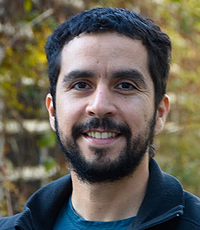This research line studies extreme hydrometeorological events and their impact on society and ecosystems, both natural and non-natural, analyzing the roles played by natural variability and anthropogenic climate change.
For the 2024-2025 period, the line aims to deepen the characterization of extreme events and their socio-environmental impacts, especially heat waves, mega-fires, and hyper-droughts, by evaluating their natural and anthropogenic drivers, projecting their future occurrence and formally attributing human-induced climate change to such impacts.
Simultaneously, it proposes to determine how climate change, natural climate variability, and increasing water demand affect water security in central-southern Chile. Additionally, it seeks to evaluate the ranges of hydrological memory, the main hydroclimatic characteristics and processes that control it, and how the propagation of extreme precipitation events is modulated under warmer climatic conditions.
Work is also being done to characterize the dynamics and interconnections of crucial aspects that determine the regional hydroclimate in Chile, which currently present signals of climate change alteration, such as the strengthening of the South Pacific Anticyclone, the strengthening and southward migration of the westerly winds, patterns of atmospheric blocking in the Southern Ocean and Antarctica, and the temporal stability between El Niño-Southern Oscillation (ENSO) and the precipitation regime in central Chile.
Review the research achievements of this line in our institutional report.











